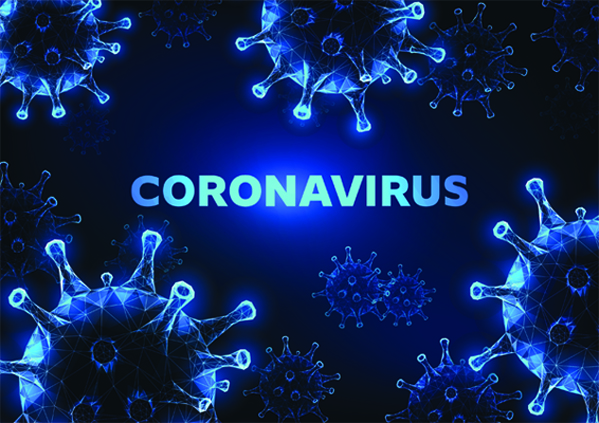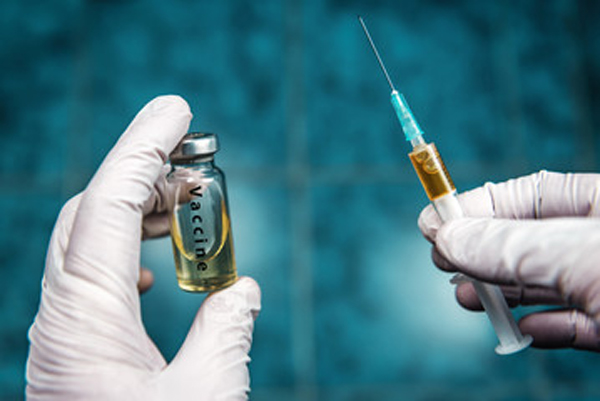Responding to the urgent need for solutions to a potentially deadly emerging infectious disease, USF Health has jumpstarted a variety of COVID 19-related research projects.
The work may contribute to worldwide efforts to accelerate the discovery and validation of new technologies to diagnose and prevent the spread of SARS-CoV-2, as well as finding potential new treatments for COVID-19, the respiratory disease caused by the new coronavirus.
The new studies are being conducted by scientists across disciplines including biochemistry, infectious diseases and international medicine, medical engineering, nursing, pharmacy, public health, structural biology and virology. The ambitious research efforts include the joint clinical trials launched last month by USF Health and Tampa General Hospital.
“Many fundamental questions remain about this newest coronavirus, including how it functions, the ability of antibodies to convey immunity, and whether genetic differences in certain populations affect their susceptibility to COVID-19 infection or severity of the illness,” said Stephen Liggett, MD, associate vice president of the USF Health Office of Research and vice dean for research in the Morsani College of Medicine. “Our faculty and student researchers have been quick to mobilize their talent and resources, because they want to do whatever they can to find answers — both to help fight this pandemic and to prepare for future outbreaks.”
Some of the COVID-19 related projects build upon knowledge and insights USF Health scientists have acquired using advanced technologies to study the underlying molecular and cellular biology of other viruses and pathogens, including respiratory syncytial virus and HIV.
Among the more than 60 new research projects underway, or being scaled up, are:
- 3D printed nasal swabs for testing: This multidisciplinary project was recently cited in Nature. At the request of USF Health Senior Vice President Dr. Charles J. Lockwood, USF Health Morsani College of Medicine faculty in partnership with faculty at Northwell Health (New York, NY), developed, bench lab-tested, and clinically validated 3D printable flocked nasopharyngeal (NP) swabs to obtain viral RNA samples for COVID-19 testing. The NP swabs were designed with FDA-cleared software and produced on FDA-cleared 3D printers using FDA-cleared surgical grade material that can withstand high-temperature sterilization. The swabs are comparable to commercially available, conventional NP swabs composed of nylon or polyester to obtain enough viral particles to reliably diagnose COVID-19. The FDA has cleared the use of 3D printed swabs made with medical/dental grade materials. USF Health and Northwell Health hold the provisional patent for this technology but are sharing the print file with institutions that have the FDA-cleared technology and materials to print their own swabs. The 3D formula has been provided to medical centers throughout the U.S. and to other countries.
- Antibody tests and immunity: The reliability of new tests that detect blood markers of SARS-CoV-2 infection (antibodies) varies. This collaborative research with Tampa General Hospital’s laboratory, will compare different combinations of antibody tests and analyze which best determines whether a person infected with the virus develops a protective immune response. Knowing whether, and when, antibodies convey immunity could help hospitals and other health care employers decide whom among their medical staff might safely return to work. It can also help researchers recalculate a more accurate fatality rate in the general population by providing a broader picture of COVID-19 infections (including in those with mild or no symptoms). Principal investigator: Kami Kim, MD
- Susceptibility in different ethnic backgrounds: African Americans and Hispanics have double the infection rates and deaths from COVID-19, and in some disease hotspots they are among those disproportionately affected by pre-existing cardiovascular conditions like hypertension and heart failure. This project seeks to answer key questions about COVID-19 related racial/ethnic disparities, including whether socioeconomic differences alone account for differences in infection rates and cardiovascular complications, or if cellular-level or other physiological factors contribute to worse disease outcomes. Principal investigator: Thomas McDonald, MD, USF Health Heart Institute, MCOM.
- Protective antibodies and vaccines: People previously exposed to SARS CoV-2 make immune responses to viral proteins. This public health-medicine team project aims to find parts of the viral proteins, called epitopes, that are recognized by antibodies. Some epitopes are associated with strong protective antibody responses that neutralize the virus while others are not. This Morsani College of Medicine-College of Public Health study will help identify specific epitopes that lead to strong neutralizing antibodies so that researchers can develop more effective vaccines. The information will also help in screening donor plasma that can be best used for treatment of critically ill COVID-19 patients. Principal investigator: Kami Kim, with co-investigators Michael Teng, PhD; John Adams, PhD; and Thomas Unnasch, PhD.
- Portable biomedical testing system: This project explores whether a mobile phone version of the Enzyme Linked Immunosorbent Assay (ELISA), technology patented by USF, could be used to accurately measure antibodies (proteins) made in response to the COVID-19 virus. Laboratory-based ELISA is the gold standard in biochemical analysis of proteins, but the blood test requires big, expensive machines for its complex steps, including incubation and reading. The lightweight Mobile Enzyme Linked Immunosorbent Assay (MELISA) device may allow patients to cost-effectively obtain point-of-care antibody testing and results at a clinic or even a remote area. Anna Pyayt, PhD, principal investigator, College of Engineering (affiliated with Department of Medical Engineering).
- Targeting viral replication– This study applies advanced techniques, including X-ray crystallography and molecular docking, to identify new or existing drugs that prevent viral replication by inhibiting SARS-CoV-2 main protease, or by blocking entry of the virus into human cells. Principal investigator: Yu Chen, PhD, Department of Molecular Medicine, MCOM.
For a complete list of all USF Health COVID-19 related research studies, click here. The list includes some proposals and some projects internally funded by the newly created University of South Florida COVID-19 Rapid Response Research Grants program.



